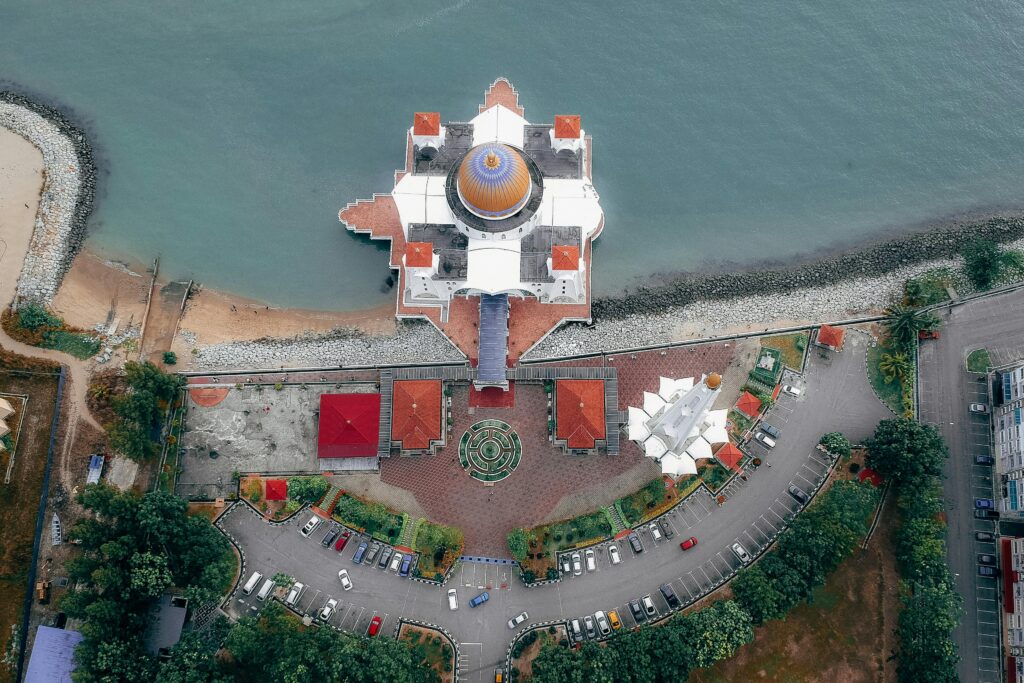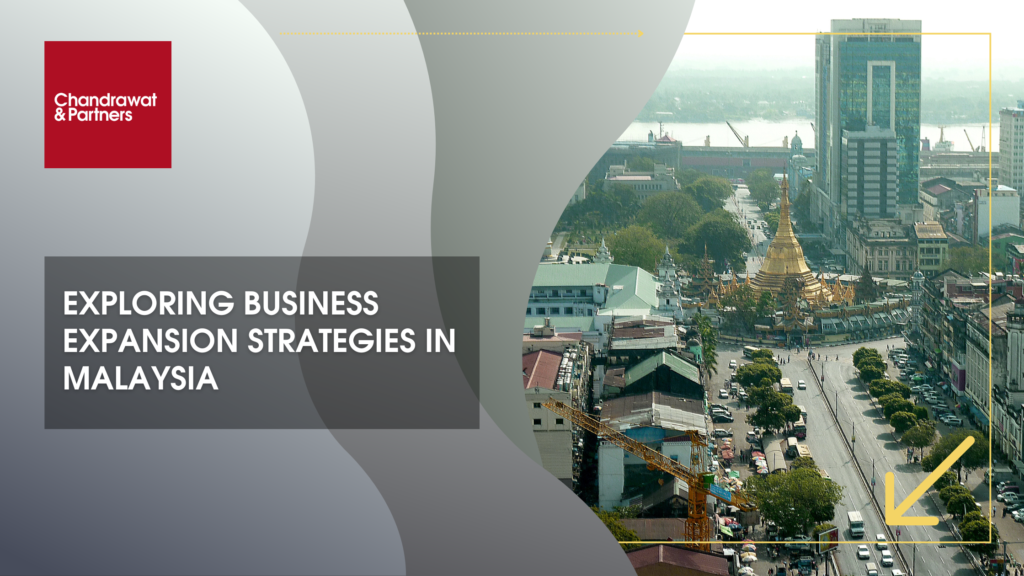Malaysia
We have a team of professionals to help you with all your business needs. So, that you can focus on business expansion in Malaysia.
WHY MALASIA?
Located in Southeast Asia, between Singapore, Thailand and Indonesia, Malaysia also shares maritime borders with the Philippines and Vietnam. It’s known for its beaches, rain forests and mixture of Malay, Chinese, Indian and European cultures. Being a multi-ethnic and multi-religious country in Southeast Asia, Malaysia is one of the wealthiest and most developed countries, outranked in GNP only by Singapore and oil-rich Brunei. Although, manufacturing is the largest single component of Malaysian economy, but tourism and primary commodities, such as; petroleum, palm oil, natural rubber and timber are also major contributors to the Malaysian economy. As per ranking of World Bank, Malaysia is the 6th friendliest country in the world to do business.

ADVANTAGES
Malaysia is regarded as one of the most vibrant countries in Southeast Asia, it offers many advantages as an ideal investment destination. Malaysia is a fantastic country with friendly citizens and a wealth of natural wonders to explore and enjoy. With a competitive economy, a fast growing GDP which improves every year, and the world’s largest export market in semiconductors and other electrical goods, Malaysia has a lot to offer people relocating abroad. From manufacturing and distribution to technical expertise in the service sector, Malaysia offers opportunities to every foreign investor across the world. The followings are some advantages of doing business in Malaysia:
Strategic Location
Located in the center of Asia, Malaysia offers a getaway to regional markets of over 600 million people. Due to its important strategic location and multilingual talent advantage, it has become a suitable destination for companies around the world to invest. Major Asian business centers, such as; Tokyo, Beijing, Hong Kong, Shanghai, and Seoul are easily reachable from the Malaysian capital, Kuala Lumpur, within a couple of hours.
Tax Incentives
To encourage the private sector and foreign investors’ participation, the Malaysian government provides incentives to organizations, which include; grants, funds, tax incentives, and expatriate employment incentives. The followings entities are exempted from corporate tax for five years:
- Emerging industrial status (general manufacturing) with a statutory income of 70%.
- High-tech enterprises with a statutory income of 100%.
- Industrialized building system with the statutory income of 70%-100%.
Skilled Workforce
Malaysian government’s initiatives to provide free education have played a vital role in the development of a productive workforce in the country. Any foreign investor interested to set up a business in Malaysia need not have to worry about efficiency in the workforce since the most workforce is primarily trained for industries.
Free Trade Agreements
Malaysia has signed free trade agreements with countries, such as; China, India, Korea, Japan, Hong Kong, etc. to eliminate the trade barriers.
SIMPLE TAX REGIME
Individual Income Tax
- An individual in Malaysia is taxed on income accruing in or derived from Malaysia. The tax rates are progressive in nature, up to 26%.
- A non-resident individual is taxed at a flat rate of 30% on total taxable income.
- An individual is considered a tax resident if he/she is in Malaysia for 182 days or more in a calendar year.

Corporate Income Tax
In Malaysia, the common corporate tax rate is 24%. Generally, the resident and non-resident companies are liable to be taxed on income derived from Malaysia with an exception of banking, insurance, air transport, or shipping sectors.
Taxable income comprises all earnings derived from Malaysia, including gains or profits from dividends, interest, royalty, and land trading business or other earnings. The resident companies are liable to pay the tax at the followings rates:
- Companies with paid-up capital of 2.5 million Malaysian ringgit (MYR) or less, and gross income from the business of not more than MYR 50 million are liable to pay 17% of total income.
- Companies that do not control, directly or indirectly, another company that has paid-up capital of more than MYR 2.5 million.
- Companies not controlled, directly or indirectly, by another company that has paid-up capital of more than MYR 2.5 million are liable to pay 24% of total income.
A non-resident company is liable to pay the tax at the rate of 24% of its taxable income.
MALAYSIAN COMPANIES
Malaysia is a suitable option for foreign investors to form an entity. Broadly, there are five main types of business entities in Malaysia which are:
Sole Proprietorship
A Sole Proprietorship is the simplest business entity, owned solely by only one individual, as his or her liability is unlimited. In case of bankruptcy, creditors will be able to sue the sole proprietor for all the debts owned to respective merchants. Only Malaysian citizens or permanent residents are permitted to register under this business entity.

Partnership
The partnership is like an extended version of a sole proprietorship. It comprises of a joint-entity holder with 2 or more people and a maximum of 20 members. This type of business setups is most suitable for professional firms such as auditors and lawyers. All the partners are bounded by unlimited liability.
Private Limited Company
These kinds of companies prohibit any invitation to the public to subscribe to any of its shares, deposit money with the company for investment or subscription. Malaysian Companies Act 2016, allows the incorporation of a company with a minimum of one member but, not more than 50 members. Generally, there are three kinds of limited companies in Malaysia:

- Limited by Shares
- Limited by Guarantee
- An unlimited company with/without share capital
Foreign Company
In this type of company, foreigners are allowed to register a private limited company in Malaysia. Such companies can have 100% foreign ownership, requires at least one local director ordinarily residing in Malaysia, and should have a principal place of residence in Malaysia. These companies are already incorporated (formed) outside of Malaysia but set up their business premises and operations in Malaysia. There are two ways to go for a ‘foreign company’ in Malaysia:
- Register a branch in Malaysia, or;
- Incorporate a local company.

RELATED BLOGS
Although, manufacturing is the largest single component of Malaysian economy, but tourism and primary commodities, such as; petroleum, palm oil, natural rubber and timber are also major contributors to the Malaysian economy. As per ranking of World Bank, Malaysia is the 6th friendliest country in the world to do business.
Author: Chandrawat & Partners
Topic: Doing Business in Malaysia
Contact Us
Get in touch with the right people to get the right help in setting up your business in Malaysia.
We have a team of professionals to help you with all your business needs. So, that you can focus on business expansion in Malaysia.
Please feel free to email us on [email protected]
Malaysia
Why malasia?
Located in Southeast Asia, between Singapore, Thailand and Indonesia, Malaysia also shares maritime borders with the Philippines and Vietnam. It’s known for its beaches, rain forests and mixture of Malay, Chinese, Indian and European cultures. Being a multi-ethnic and multi-religious country in Southeast Asia, Malaysia is one of the wealthiest and most developed countries, outranked in GNP only by Singapore and oil-rich Brunei. Although, manufacturing is the largest single component of Malaysian economy, but tourism and primary commodities, such as; petroleum, palm oil, natural rubber and timber are also major contributors to the Malaysian economy. As per ranking of World Bank, Malaysia is the 6th friendliest country in the world to do business.
Advantages
Malaysia is regarded as one of the most vibrant countries in Southeast Asia, it offers many advantages as an ideal investment destination.
Malaysia is a fantastic country with friendly citizens and a wealth of natural wonders to explore and enjoy. With a competitive economy, a fast growing GDP which improves every year, and the world’s largest export market in semiconductors and other electrical goods, Malaysia has a lot to offer people relocating abroad.
From manufacturing and distribution to technical expertise in the service sector, Malaysia offers opportunities to every foreign investor across the world. The followings are some advantages of doing business in Malaysia:
Strategic Location
Located in the center of Asia, Malaysia offers a getaway to regional markets of over 600 million people. Due to its important strategic location and multilingual talent advantage, it has become a suitable destination for companies around the world to invest. Major Asian business centers, such as; Tokyo, Beijing, Hong Kong, Shanghai, and Seoul are easily reachable from the Malaysian capital, Kuala Lumpur, within a couple of hours.
Tax Incentives
To encourage the private sector and foreign investors’ participation, the Malaysian government provides incentives to organizations, which include; grants, funds, tax incentives, and expatriate employment incentives. The followings entities are exempted from corporate tax for five years:
- Emerging industrial status (general manufacturing) with a statutory income of 70%.
- High-tech enterprises with a statutory income of 100%.
- Industrialized building system with the statutory income of 70%-100%.
Skilled Workforce
Malaysian government’s initiatives to provide free education have played a vital role in the development of a productive workforce in the country. Any foreign investor interested to set up a business in Malaysia need not have to worry about efficiency in the workforce since the most workforce is primarily trained for industries.
Free Trade Agreements
Malaysia has signed free trade agreements with countries, such as; China, India, Korea, Japan, Hong Kong, etc. to eliminate the trade barriers.
Simple Tax Regime
Individual Income Tax
- An individual in Malaysia is taxed on income accruing in or derived from Malaysia. The tax rates are progressive in nature, up to 26%.
- A non-resident individual is taxed at a flat rate of 30% on total taxable income.
- An individual is considered a tax resident if he/she is in Malaysia for 182 days or more in a calendar year.
Corporate Income Tax
In Malaysia, the common corporate tax rate is 24%. Generally, the resident and non-resident companies are liable to be taxed on income derived from Malaysia with an exception of banking, insurance, air transport, or shipping sectors.
Taxable income comprises all earnings derived from Malaysia, including gains or profits from dividends, interest, royalty, and land trading business or other earnings. The resident companies are liable to pay the tax at the followings rates:
- Companies with paid-up capital of 2.5 million Malaysian ringgit (MYR) or less, and gross income from the business of not more than MYR 50 million are liable to pay 17% of total income.
- Companies that do not control, directly or indirectly, another company that has paid-up capital of more than MYR 2.5 million.
- Companies not controlled, directly or indirectly, by another company that has paid-up capital of more than MYR 2.5 million are liable to pay 24% of total income.
A non-resident company is liable to pay the tax at the rate of 24% of its taxable income.
Malaysian Companies
Malaysia is a suitable option for foreign investors to form an entity. Broadly, there are five main types of business entities in Malaysia which are:
Sole Proprietorship
A Sole Proprietorship is the simplest business entity, owned solely by only one individual, as his or her liability is unlimited. In case of bankruptcy, creditors will be able to sue the sole proprietor for all the debts owned to respective merchants. Only Malaysian citizens or permanent residents are permitted to register under this business entity.
Partnership
The partnership is like an extended version of a sole proprietorship. It comprises of a joint-entity holder with 2 or more people and a maximum of 20 members. This type of business setups is most suitable for professional firms such as auditors and lawyers. All the partners are bounded by unlimited liability.
Private Limited Company
These kinds of companies prohibit any invitation to the public to subscribe to any of its shares, deposit money with the company for investment or subscription. Malaysian Companies Act 2016, allows the incorporation of a company with a minimum of one member but, not more than 50 members. Generally, there are three kinds of limited companies in Malaysia:
- Limited by Shares
- Limited by Guarantee
- An unlimited company with/without share capital
Public Limited Company
In public limited companies, shares can be offered to the public for fixed periods or through any other form of subscription. The minimum number of members (shareholders) requires to form a public limited company is two.
Foreign Company
In this type of company, foreigners are allowed to register a private limited company in Malaysia. Such companies can have 100% foreign ownership, requires at least one local director ordinarily residing in Malaysia, and should have a principal place of residence in Malaysia. These companies are already incorporated (formed) outside of Malaysia but set up their business premises and operations in Malaysia. There are two ways to go for a ‘foreign company’ in Malaysia:
- Register a branch in Malaysia, or;
- Incorporate a local company.
Related blogs
Although, manufacturing is the largest single component of Malaysian economy, but tourism and primary commodities, such as; petroleum, palm oil, natural rubber and timber are also major contributors to the Malaysian economy. As per ranking of World Bank, Malaysia is the 6th friendliest country in the world to do business.
Author: Chandrawat & Partners
Topic: Doing Business in Malaysia
Download our comprehensive guide on – Doing Business in Malaysia
Contact Us
Get in touch with the right people to get the right help in setting up your business in Malaysia.
Contact us at: [email protected]







